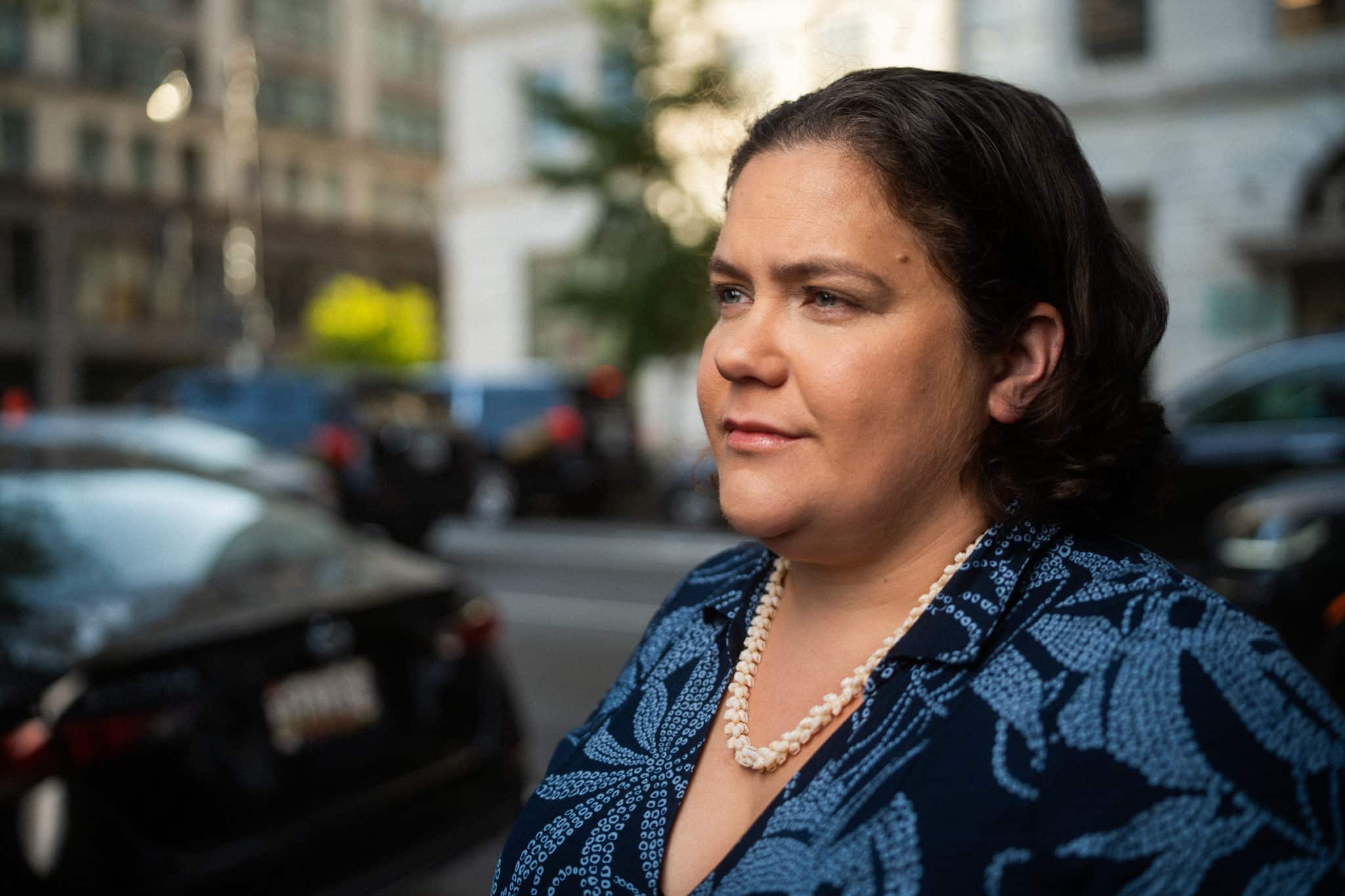Building Community From Isolation

Because her family couldn’t afford it if she took unpaid leave from her job, Keʻōpū Reelitz was back at work within 4 weeks of giving birth to her first child.
“I wanted to provide for my family,” she says. “I didn’t get a real maternity leave.”
Keʻōpū was eligible for leave under the Family and Medical Leave Act, which holds a worker’s job while they take time to recover from a serious illness, pregnancy or provide caregiving for a close family member. Workers can take up to 12 weeks of leave without putting their job in danger, but the time away from work is unpaid. Many workers, like Keʻōpū, shy away from FMLA leave because their families simply can’t afford the financial strain of going 4 months without a paycheck. Instead, Keʻōpū used as much of her paid leave benefits, such as vacation days and sick leave, as she could. She and her husband decided that he would stay at home with the newborn, while she returned to work.
The decision to return to work was not without cost to Keʻōpū, both physically and emotionally. She juggled two jobs and initially returned to work part time and gradually added more hours. She says she got through her work days while feeling tired and bleary-eyed from taking care of her baby the night before.
“Somebody who needs food can get hangry,” she says. “I get slangry (sleep/angry). Sleep deprivation was the hardest for me.”
She also found the lack of support as a new mother to be daunting. No one, not even a close friend who became a first-time parent around the same time, would talk openly about the difficulties of parenting while trying to keep one’s family afloat financially.
“I felt weighed down from trying to take care of my family,” she says. “I felt like I was losing myself. I remember how alone I felt.”
Because of her loneliness 8 years ago, Keʻōpū also has taken on the mission of making sure new mothers don’t experience the same level of isolation that she did. Keʻōpū finds new moms by keeping an eye on her social media. She says she waits until after the baby is born to reach out to new mothers. She waits because she felt the loneliest and most isolated after her first child was born. When she gets the opportunity to talk, she offers support to the new parent, telling them that she is available to them.
“I congratulate them,” she says. “In the hours after birth, that’s when I felt the most alone. That’s why I wait until that moment. I tell them, ‘I’m here for the small joys and the big cries.’”
She reaches out to new mothers, mainly to listen to and encourage them, but she does offer some advice.
“I tell them, ‘Sleep now if you’re somebody who needs sleep.’”
Keʻōpū says that she finds other workers have misconceptions about FMLA leave because there are a lot of misconceptions about caregiving. She thinks we should talk more openly about care.
“We don’t talk about it (caregiving) enough,” she says. “We need to figure out how to prepare people for caregiving in a way that is loving and caring.”
Another misconception Keʻōpū pointed out is that there’s more involved with FMLA leave than just the potential salary loss. While on unpaid FMLA leave, some workers may not be able to afford to continue making their personal contributions to retirement accounts and are not required to make up for those lost contributions when they start back working. However, even a few months of lost or decreased retirement contributions can make a big difference in the long run. Other workers may have to pay more for their health insurance, adding to the financial burden of unpaid leave.
While FMLA offers leave options and job protection to workers that didn’t previously exist, it isn’t the be-all of leave legislation. That is why Keʻōpū advocates for paid leave in her home state of Hawaii. She willingly tells her story of heading back to work 4 weeks after her baby was born. And she doesn’t just push for paid leave alone. She also pushes for financial protections to worker benefits so workers won’t suffer massive financial losses because of an illness, injury or pregnancy.
“We need to ensure that those who take time to care for loved ones don’t have to face (financial) penalties just to take care of their loved ones.”